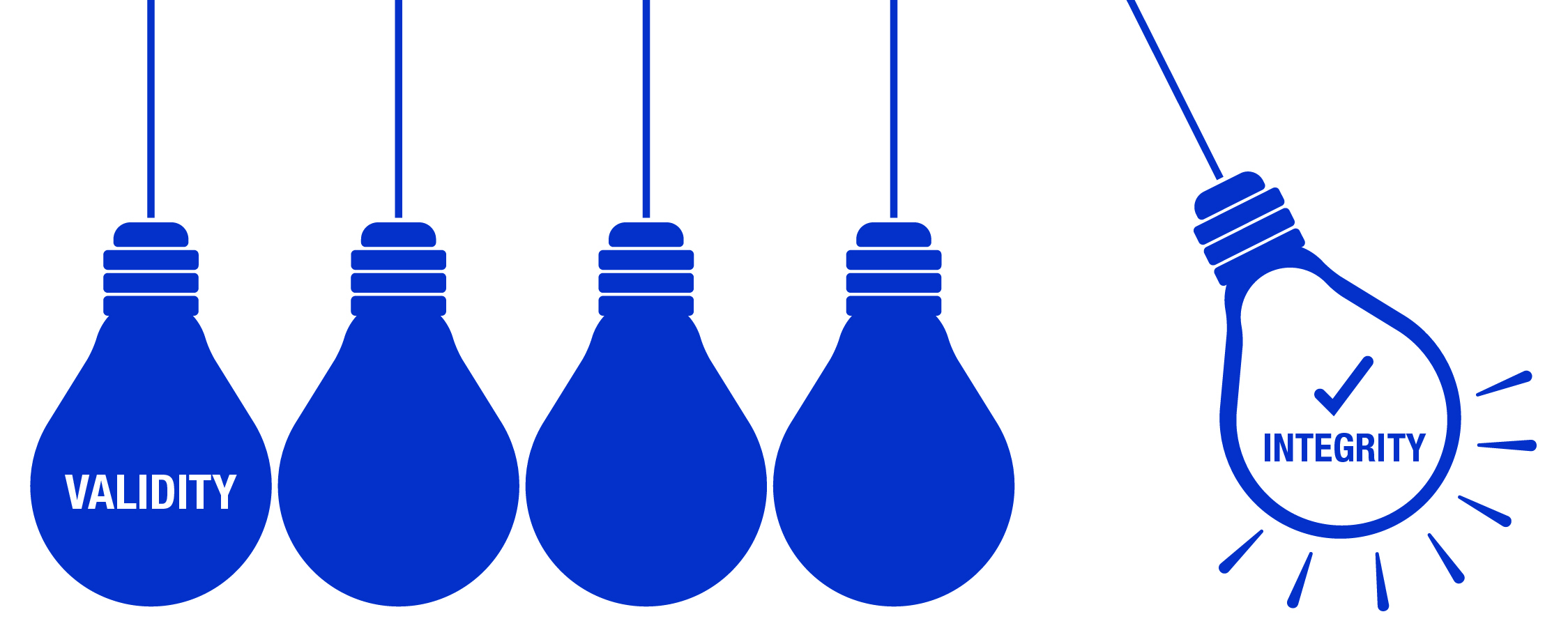Scientific & Research Integrity Policy
The DOJ Scientific Integrity Policy underscores the validity and objectivity of NIJ’s scientific endeavors.
The Institute provides objective and independent knowledge and tools to enhance safety and promote justice. NIJ follows widely accepted scientific processes and procedures to help ensure the validity and integrity of our research. This page describes:
- Peer reviewing proposals.
- Identifying and addressing potential conflicts of interest.
- Make datasets available for replication and review.
Proposals Are Peer Reviewed for Relevance and Rigor
Proposals received under a funding opportunity are reviewed by independent peer panels to assess the quality and policy relevance of the research. Review panels are comprised of experts from academia, industry, and government organizations along with practitioners from federal, state, and local agencies and professional associations and people with personal experience with the justice system. Once reviewers have completed evaluations, NIJ program managers recommend individual proposals to the NIJ director, who makes final award decisions.
Noncompetitive awards. The Institute funds research, development, and evaluation activities to meet the challenges of crime and justice primarily through competitive grant funding opportunities. The focus of the funding opportunities varies from year to year based on research priorities and available funding. On occasion, owing to time-sensitive mandates and priorities, the Institute funds research, development, and evaluation activities through consulting agreements with individual experts and interagency agreements with other federal agencies and external institutional partners which are typically noncompetitive in nature.
Applicants, Peer Reviewers and NIJ Staff Must Identify and Address Potential Conflicts of Interest
Applicants. The Institute must be assured of an awardee's ability to identify and effectively manage any factors that could affect the objectivity and independence of their work. Research independence and integrity require that awardees ensure that the design, conduct, or reporting of research funded by NIJ grants, cooperative agreements, or contracts will not be biased by the investigators’ financial interest.
Applications for funding must explain the process and procedures the applicant uses to identify and manage potential financial conflicts of interest. If an applicant believes that there are no potential personal or organizational financial conflicts of interest, the applicant must provide a brief explanation of why that is the case. Where potential organizational financial conflicts of interest exist, the applicant must identify the safeguards in place to address them.
NIJ Staff. All NIJ staff members involved in a pre-award evaluation process must review the Institute's official guidance on conflicts of interest. Before they begin reviewing applications, NIJ staff must identify every application for which they have a real or potential conflict of interest. If they have a conflict, they are not allowed to review or discuss those applications. Conflicts of interest must be explained in writing and reviewed by the staff member's immediate supervisor. The supervisor must ensure that all work pertaining to application review and any subsequent grant award management be assigned in ways that mitigate documented conflicts of interest.
Peer Reviewers. Each peer reviewer must sign a conflict-of-interest form certifying that they have no financial or ethical conflicts of interest. If a reviewer fails to return the form, NIJ will remove them from the panel.
Datasets Are Made Available for Review and Replication
NIJ research funding recipients must submit data resulting from their projects for archiving at an appropriate data repository. Archiving ensures the preservation, availability, and transparency of data collected through NIJ-funded research and evaluation. Making these data available allows researchers to test each other's conclusions — verifying, refining, or refuting original findings — and develop and test new conclusions. Learn more about the process for submitting and reviewing datasets.
NIJ’s principal data repository is the National Archive of Criminal Justice Data (NACJD), which provides online access to machine-readable files, data dictionaries, study abstracts, and geographic data. Visit the National Archive of Criminal Justice Data. Data from projects in the natural sciences and engineering may be more appropriately archived in a discipline-specific repository. Read more about Alternate Data Repositories.



